Tusks grow on both male and female pigs and, as Michaela Giles explains, need to be understood and managed by anyone keeping older pigs

While at a show earlier this year, a fellow exhibitor happened to mention that he thought that, despite his appropriate, age-related body size, a boar of mine appeared older than his stated age, due to the length of his tusks.
It was an interesting comment, and I was pleased that the exhibitor had been decent enough to air his thoughts directly to me, and in a friendly way. Of course, I knew exactly when the boar had been born so it wasn’t an issue, but the incident set me thinking about how much any of us actually knows about tusks and their development?
Most experienced pig breeders who show their animals, recognise the need to remove tusks from exhibition boars aged 12 months and over, for simple reasons of safety. The risk of scratches and skin punctures – both for handlers and other pigs in the show ring – is a very real one if tusks aren’t removed.
Aside from that, though, I have to admit that I knew little more about tusks, and could nd virtually no reference to them in any of the established, pig-related reference books. So this article represents the culmination of some serious digging in some very remote areas of the internet!
What are they?
The first thing to establish is that tusks – also known as ‘tushes’ – are a pig’s canine teeth and, as such, are found in both sows and boars. The lower tusks are sometimes called ‘cutters’ because they tend to have very sharp tips, while the upper ones get referred to as ‘whetters’; their primary function is to sharpen the lower ones. If you think of the way a whetstone is used for sharpening blades, you’ll understand the etymology of the name.
This story is from the Winter 2017 edition of Practical Pigs.
Start your 7-day Magzter GOLD free trial to access thousands of curated premium stories, and 9,000+ magazines and newspapers.
Already a subscriber ? Sign In
This story is from the Winter 2017 edition of Practical Pigs.
Start your 7-day Magzter GOLD free trial to access thousands of curated premium stories, and 9,000+ magazines and newspapers.
Already a subscriber? Sign In

Woodland Wonders
Chris Graham meets Vicky Quick, and her second batch of much-loved and greatly-appreciated, native breed pigs
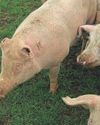
Dangerous Diamonds!
Michaela Giles explains the ins and outs of Erysipelas, the serious threat it poses and how best to deal with it
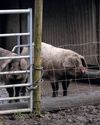
Vital Awareness
Michaela Giles spotlights the latest campaigns aimed at raising awareness among keepers about the threats posed to their pigs by two serious diseases
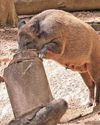
Cause For Concern
Michaela Giles explains the dangers posed to our pig population by the threat of African Swine Fever, as this worrying disease creeps ever closer to the UK

Sailing To Success!
Former yacht captain Mark Terry, and his partner April, an ex-corporate lawyer, have settled on the stunning island of Guernsey and established a successful charcuterie business. This is their story
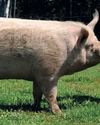
Buying guide: Middle White
Chris Graham introduces another of our native breeds that’s in desperate need of support, yet which should be nothing but a pleasure to own
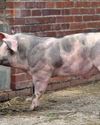
Easy Fella!
Boars can be a touch pushy come the spring or, on very rare occasions, naturally aggressive. Michaela Giles provides some practical guidance on how best to deal with muscly males
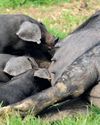
What, No Piglets?
Michaela Giles investigates the huge topic of infertility in pigs, and provides a practical overview of the problem and its many and varied causes
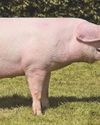
Buying Guide: Welsh
Chris Graham introduces a breed of pig which he argues can offer keepers at all levels just about all they could ever wish for
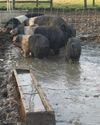
Be Ready!
Experienced keeper Michaela Giles advises that it’s never too early to start thinking about winter, and how best to shepherd your pigs safely through it